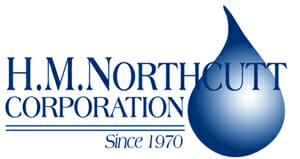Drinking water quality plays a vital role in maintaining health and well-being, especially in areas like South Carolina where city water supplies are prevalent. Many residents rely on municipal water systems that may contain various impurities. Ensuring that the water consumed is clean and safe can significantly impact daily life and overall health. Reverse osmosis (RO) emerges as a popular method for enhancing water quality, offering a promising solution for those looking to improve their drinking water.
Reverse osmosis systems work by effectively filtering out contaminants that are often present in city water. These systems can address a range of impurities, including chlorine and PFAS, which are common in municipal supplies. By removing such contaminants, RO systems can provide healthier drinking water, making them an appealing choice for households concerned about water quality.
For residents seeking reliable residential water solutions, considering reverse osmosis systems may offer a path to cleaner and safer drinking water. This article will explore the multiple benefits of using reverse osmosis for city water filtration, highlighting its potential to transform the quality of water consumed daily.
Understanding Reverse Osmosis
Reverse osmosis is a sophisticated process designed to drastically reduce unwanted particles from water. At its core, RO uses a semi-permeable membrane to filter out contaminants, allowing only clean water molecules to pass through. This method ensures that impurities are left behind, resulting in significantly improved water quality.
RO systems operate effectively at both commercial and residential levels. In homes, these systems can be installed under the sink or as part of a whole-house system, providing families with access to cleaner water throughout their living spaces. On a commercial scale, reverse osmosis systems support businesses by ensuring high-quality water for various applications.
For those interested in the commercial applications of reverse osmosis, exploring how these systems function can offer valuable insights. Whether used in a home or business setting, reverse osmosis effectively removes numerous contaminants, enhancing the overall quality of water available for consumption.
Removal of Contaminants
Reverse osmosis systems excel at targeting specific contaminants commonly found in city water supplies. Chlorine, often used in municipal water treatment processes, can affect the taste and odor of drinking water. PFAS, another concern, may also be present due to industrial activities and pose challenges for water quality.
By addressing these substances, RO systems enhance the enjoyability of drinking water without compromising safety. The removal of chlorine improves the taste and smell, making water more pleasant to drink. Additionally, reducing PFAS levels contributes to a cleaner and more refreshing experience.
For those interested in understanding municipal insights on water treatment, exploring the role of reverse osmosis in removing such contaminants can be enlightening. Cleaner water not only tastes better but also supports everyday activities like cooking and cleaning, making it an essential aspect of daily life.
Interesting Facts about Reverse Osmosis for Healthier Drinking Water
|
Health Benefits of RO Systems
Consuming water treated through reverse osmosis (RO) systems can offer significant health benefits. By addressing impurities like chlorine and PFAS, these systems contribute to a healthier lifestyle. Households concerned with water quality may find peace of mind knowing that their drinking water is free from many contaminants that could affect well-being.
RO water health benefits include the potential reduction of exposure to harmful substances often found in city water supplies. This cleaner water can support overall health, making it an attractive choice for families aiming to improve their daily water intake. The process of reverse osmosis ensures that the water you drink is not only safe but also supports a healthier lifestyle.
For those interested in the company’s background and commitment to quality water solutions, connecting with trusted experts can build confidence in choosing the right system for your needs. Understanding the benefits of RO systems can empower you to make informed decisions about your family’s health.
Improved Taste and Odor
Reverse osmosis systems enhance the taste and odor of drinking water, making it more enjoyable for daily consumption. While naturally pure water is rare, RO-treated water offers a superior flavor profile by removing impurities that can affect taste. This makes it a preferred choice for those who value both safety and enjoyability in their drinking water.
City water filtration through reverse osmosis can significantly improve the overall experience of drinking water. By addressing elements that contribute to unpleasant tastes and odors, RO systems provide a refreshing and clean option for households. This improvement in taste and odor can make a noticeable difference in how you enjoy your water.
For personalized advice on enhancing your home’s water quality, consider connecting with experts. They can guide you on how to achieve the best results with your RO system, ensuring that your water meets your expectations for taste and quality.
The Environmental Impact of RO Systems
Concerns about the environmental footprint of reverse osmosis systems are valid, but modern advancements have made these systems more sustainable. By reducing waste and optimizing efficiency, today’s RO systems aim to provide high-quality water while minimizing environmental impact. This balance between performance and sustainability makes them an appealing choice for eco-conscious consumers.
Technological advancements in RO systems support eco-friendly practices, ensuring that while you enjoy the benefits of clean water, you also contribute to environmental conservation. These systems are designed to use resources efficiently, reducing their overall impact on the planet.
For those interested in learning more about sustainable water solutions, exploring advancements in RO technology can provide valuable insights into how these systems align with environmental goals. By choosing an RO system, you can enjoy the benefits of clean water while supporting a more sustainable future.
Installation Considerations
Installing a reverse osmosis system requires careful consideration of factors like selection, sizing, and placement within the home. Homeowners can benefit greatly from these systems, but renters might face challenges due to installation requirements. It’s important to assess your living situation and determine the best approach for incorporating an RO system.
Consulting professionals for tailored solutions ensures that you have all the information needed to make an informed decision about your home’s water treatment needs. Experts can guide you through the process, helping you select a system that meets your specific requirements and fits seamlessly into your living space.
For more insights into residential water solutions, consider exploring residential insights. These resources can provide valuable guidance on how to effectively integrate an RO system into your home, ensuring optimal performance and satisfaction.
Frequently Asked Questions About Reverse Osmosis
What is reverse osmosis?
Reverse osmosis (RO) is a water purification process that uses a semi-permeable membrane to remove particles, unwanted molecules, and contaminants from drinking water. It works by pushing water through the membrane, leaving impurities behind. This process can drastically reduce the presence of harmful substances, offering a cleaner and healthier water option. For more about residential water solutions, consider exploring residential insights.
Are all contaminants removed by RO systems?
RO systems target many contaminants, including chlorine and PFAS, which can affect water quality. While these systems effectively reduce a large number of impurities, they may not remove every single contaminant. Therefore, it’s important to understand the specific needs of your water supply. Consulting a professional for tailored advice ensures that you have all the information you need to make a decision that is right for your specific needs.
How does RO compare to other filtration methods?
Reverse osmosis often provides more comprehensive purification compared to other methods. While some filtration systems only address specific contaminants, RO targets a broader range, making it a preferred choice for those seeking higher quality drinking water. However, each method has its strengths, and the best choice depends on your specific water needs and home setup. For more information on commercial applications, you can learn more at commercial applications.
Is RO water superior for cooking or just drinking?
RO water is not only beneficial for drinking but also enhances the taste and quality of food when used in cooking. The removal of impurities means that the natural flavors of ingredients can shine through, leading to better-tasting meals. This makes RO water an excellent choice for both drinking and cooking purposes, offering versatility and quality in the kitchen.
Can renters install an RO system?
Installing an RO system can be more challenging for renters due to potential modifications required for installation. However, portable systems or countertop units might be suitable options without the need for permanent changes. Renters should consider consulting a professional for guidance on the best solutions for their living situation. Connecting with experts can provide further insights, and you can learn more at connect with experts.
Unlocking the Power of Reverse Osmosis
Reverse osmosis systems offer a transformative approach to enhancing water quality, particularly in areas like South Carolina where city water is common. These systems can drastically reduce contaminants such as chlorine and PFAS, providing a significant upgrade in water quality. This process not only improves the taste and odor of water but also contributes to a healthier lifestyle by addressing impurities that impact water quality. The environmental consciousness of modern RO systems, with their sustainable practices, adds another layer of value. They are designed to be eco-friendly, reducing waste while delivering high-quality water. This aligns with the growing need for sustainable solutions in today’s world.
Choosing the right water treatment solution is not a one-size-fits-all decision. Factors such as installation requirements, home type, and specific water quality needs play a crucial role in selecting the most effective system. Engaging with professionals can provide tailored advice, ensuring that homeowners have all the information needed to make an informed choice. This personalized approach helps in maximizing the benefits of reverse osmosis, adapting to the unique challenges and conditions of each home. For those interested in learning more about residential water solutions,read more about how these systems can be integrated into your home.
Next Steps Toward Healthier Water
Reverse osmosis stands out as a pivotal method for achieving healthier drinking water, especially in regions like South Carolina. Its ability to address a wide range of contaminants means that households can enjoy cleaner, better-tasting water. The process supports a healthier lifestyle and offers peace of mind by ensuring the water consumed is of high quality. As you consider the transformative impact of improved water quality on daily life, exploring options tailored to your needs becomes essential. Consulting industry professionals can further enhance your understanding of which solutions best fit your home.
For those ready to take the next step in improving their water quality, requesting a reverse osmosis system quote can be a great starting point. To explore how reverse osmosis can be integrated into your home and to learn more about the benefits it can provide, connect with our experts today. Discover the difference that cleaner, healthier water can make in your life.

